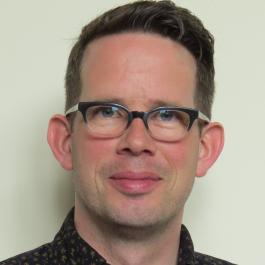Philip Bullock

Philip Bullock
Born in Germany of British parents, I have always had a strong fascination with foreign languages and cultures. I studied French and German at school, and continued these languages as an undergraduate at Durham. There, I also seized the opportunity to explore Russian for the first time. Inspired by some wonderful teachers and a year spent studying in Siberia and in Lenin’s birth town of Ulyanovsk, I fell in love with Russian literature, eventually moving to Oxford to undertake a DPhil on the Soviet prose writer, Andrey Platonov. Over the years, I have also acquired a smattering of Italian, and my work on Jean Sibelius exposed me to Finnish and Swedish, although in a very passive capacity. A year teaching at the University of Wales, Bangor, revealed the rather obvious fact that you don’t have to leave the UK to encounter new languages, and I thoroughly enjoyed becoming a student again during my Welsh evening classes.
My journey into modern languages was, however, not a direct one. For a long time I aspired to a career as a performing musician, and I remain active as an amateur pianist and organist. I was saved from what would probably not have been a very happy or successful career as a professional musician by the realisation that I was attracted above all to music with words. Most of my Italian is borrowed from Mozart and Verdi, and I learned a lot of German from listening to melancholy Lieder and Lotte Lenya as a teenager. My main research interests are in Russian music of the nineteenth and twentieth centuries, with a particular focus on the relationship between words, music and performance, and I’m currently writing a history of the Russian art song.
As part of the Creative Multilingualism programme, I’m collaborating with Rajinder Dudrah and Julie Curtis to investigate ‘Languages in the Creative Economy’ and working with the Oxford Lieder Festival. My project focuses on exploring how song can facilitate audiences’ awareness of foreign poetry and thinking about how we respond to literature when it is recited and sung, rather than simply read. I also co-convene a TORCH network on song, together with Alex Lloyd and Laura Tunbridge.
Pyotr Tchaikovsky (London: Reaktion, 2016)
‘Intimacy and Distance: Valentin Sil’vestrov’s Tikhie pesni’, Slavonic and East European Review, 92/3 (2014), 401-29
The Correspondence of Jean Sibelius and Rosa Newmarch, 1906-1939 (Woodbridge: Boydell, 2011)
‘The Composer’s Voice, the Poet’s Echo: Monologic Verse or Dialogic Song?’, in Pauline Fairclough (ed.), Shostakovich Studies 2 (Cambridge: Cambridge University Press, 2010), pp. 207-227
Rosa Newmarch and Russian Music in Late Nineteenth and Early Twentieth-Century England, Royal Musical Association Monographs, 18 (Farnham: Ashgate, 2009)
‘Ambiguous Speech and Eloquent Silence: The Queerness of Tchaikovsky’s Songs’, 19th-Century Music, 32 (2008), 94-128